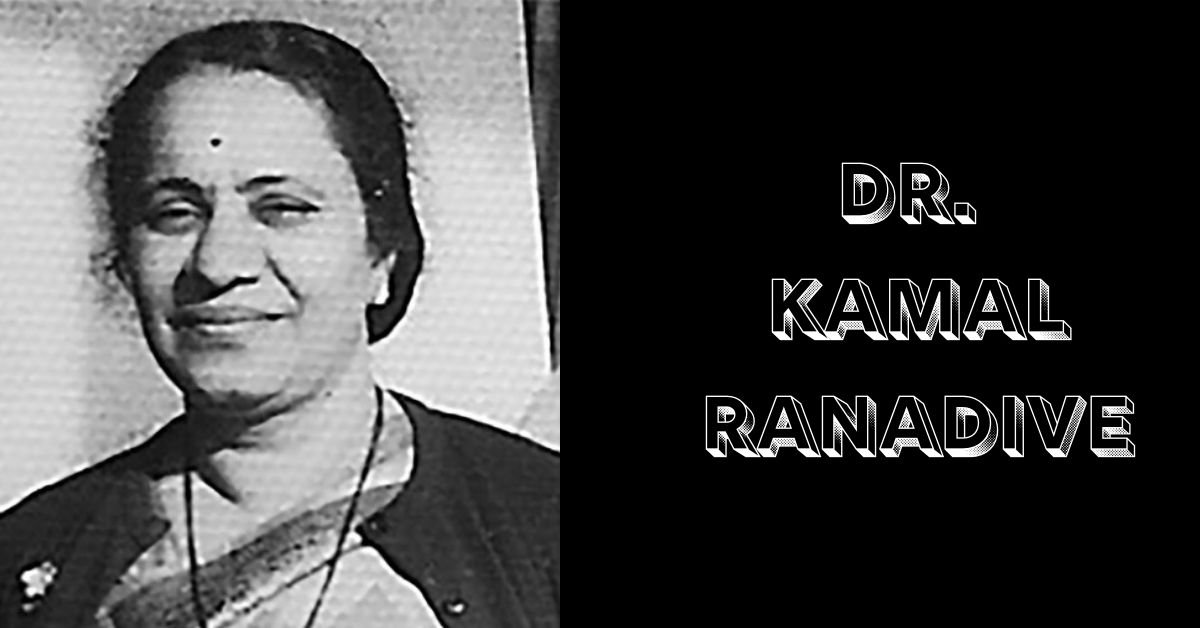When we talk about trailblazers in the field of cancer research, Dr. Kamal Ranadive’s name shines brightly. Her groundbreaking work and dedication to scientific discovery have not only advanced our understanding of cancer but also paved the way for future generations of scientists. In this article, we will explore the life, career, and lasting impact of Dr. Kamal Ranadive, a pioneering scientist whose contributions continue to resonate in the scientific community.
Early Life and Education
Dr. Kamal Ranadive was born on November 8, 1917, in Pune, India, into a family that valued education and scientific inquiry. Her father, a biologist, instilled in her a deep curiosity about the natural world from an early age. This environment fostered her interest in science, leading her to pursue higher education in the field.
Dr. Ranadive’s academic journey was marked by excellence. She completed her undergraduate studies in biology at Fergusson College in Pune and went on to earn a master’s degree from the University of Bombay. Her academic achievements laid a strong foundation for her future contributions to cancer research.
Initial Career and Challenges
Entering the professional world, Dr. Ranadive faced numerous challenges, particularly as a woman in a male-dominated field. In the early stages of her career, she worked at the Tata Memorial Hospital in Mumbai, where she began to delve into the complexities of cancer biology. Despite the societal and professional obstacles, her determination and passion for research never wavered.
Research Focus and Breakthroughs
Dr. Ranadive’s primary research focus was on cancer, specifically breast cancer. Her work was groundbreaking, shedding light on the cellular mechanisms and genetic factors that contribute to the development of cancer. One of her most significant contributions was the establishment of a link between cancer susceptibility and hereditary factors, a revelation that has profound implications for cancer prevention and treatment.
Breast Cancer Research
In her extensive research on breast cancer, Dr. Ranadive discovered crucial information about the role of hormones in the development of the disease. Her findings emphasized the importance of early detection and personalized treatment plans, significantly impacting the way breast cancer is diagnosed and managed today.
Establishment of Research Institutions
Recognizing the need for a supportive community for women in science, Dr. Ranadive founded the Indian Women Scientists’ Association (IWSA) in 1973. This organization provided a platform for women scientists to collaborate, share resources, and advocate for their rights within the scientific community. Additionally, her efforts helped establish a more robust cancer research infrastructure in India, facilitating advancements in the field.
Mentorship and Legacy
Dr. Ranadive was not only a brilliant scientist but also a dedicated mentor. She guided many young researchers, fostering their development and inspiring them to pursue their scientific passions. Her mentorship has left a lasting legacy, with many of her protégés making significant contributions to cancer research and other scientific disciplines.
Awards and Recognitions
Throughout her illustrious career, Dr. Ranadive received numerous awards and honors. Among her accolades, the Padma Bhushan, one of India’s highest civilian awards, stands out as a testament to her invaluable contributions to science. Internationally, she was recognized by various scientific bodies, underscoring her global impact.
Personal Life and Interests
Balancing a demanding career with personal life, Dr. Ranadive found joy in various hobbies and interests. She was an avid reader and had a deep appreciation for the arts, which provided a well-rounded perspective that enriched her scientific work.
Impact on Women’s Participation in Science
Dr. Ranadive was a fervent advocate for women in STEM (Science, Technology, Engineering, and Mathematics). Her efforts to promote gender equality in science have inspired countless women to pursue careers in these fields, making her a role model for future generations of female scientists.
Challenges in Cancer Research
The field of cancer research is fraught with challenges, from the complexity of the disease itself to the intricacies of developing effective treatments. Dr. Ranadive approached these challenges with a blend of scientific rigor and innovative thinking, often pushing the boundaries of what was known and possible.
Global Influence
Dr. Ranadive’s work transcended national borders, as she collaborated with researchers from around the world. Her contributions to global cancer research have had a lasting impact, influencing research directions and treatment methodologies internationally.
Philanthropic Activities
Beyond her scientific endeavors, Dr. Ranadive was deeply committed to philanthropy. She was involved in various charitable organizations, using her influence and resources to give back to society and support those in need.
Current Relevance of Her Work
Even today, Dr. Ranadive’s research remains highly relevant. Modern scientists continue to build on her discoveries, furthering our understanding of cancer and improving treatment strategies. Her work laid the groundwork for many of the advancements we see in cancer research today.
Conclusion
Dr. Kamal Ranadive’s legacy is one of brilliance, perseverance, and compassion. Her contributions to cancer research have saved countless lives and will continue to do so for generations to come. As a mentor, advocate, and pioneer, she has left an indelible mark on the world of science, inspiring future generations to follow in her footsteps and strive for excellence.
FAQs
Who was Dr. Kamal Ranadive?
Dr. Kamal Ranadive was a pioneering scientist known for her groundbreaking research in cancer biology, particularly breast cancer. She made significant contributions to our understanding of the genetic and cellular mechanisms of cancer.
What were Dr. Ranadive’s major contributions to cancer research?
Her major contributions include establishing a link between hereditary factors and cancer susceptibility, as well as groundbreaking work on the role of hormones in breast cancer development.
How did Dr. Ranadive support women in science?
She founded the Indian Women Scientists’ Association (IWSA), providing a platform for women scientists to collaborate and advocate for their rights, significantly promoting gender equality in the scientific community.
What awards did Dr. Kamal Ranadive receive?
Dr. Ranadive received numerous awards, including the prestigious Padma Bhushan, recognizing her invaluable contributions to science and cancer research.
Why is Dr. Ranadive’s work still relevant today?
Her research laid the foundation for many current advancements in cancer treatment and prevention. Modern scientists continue to build on her work, making her contributions enduringly significant.











